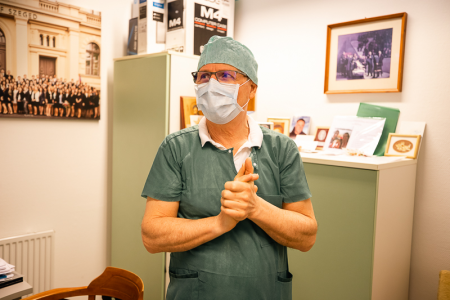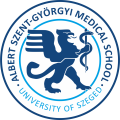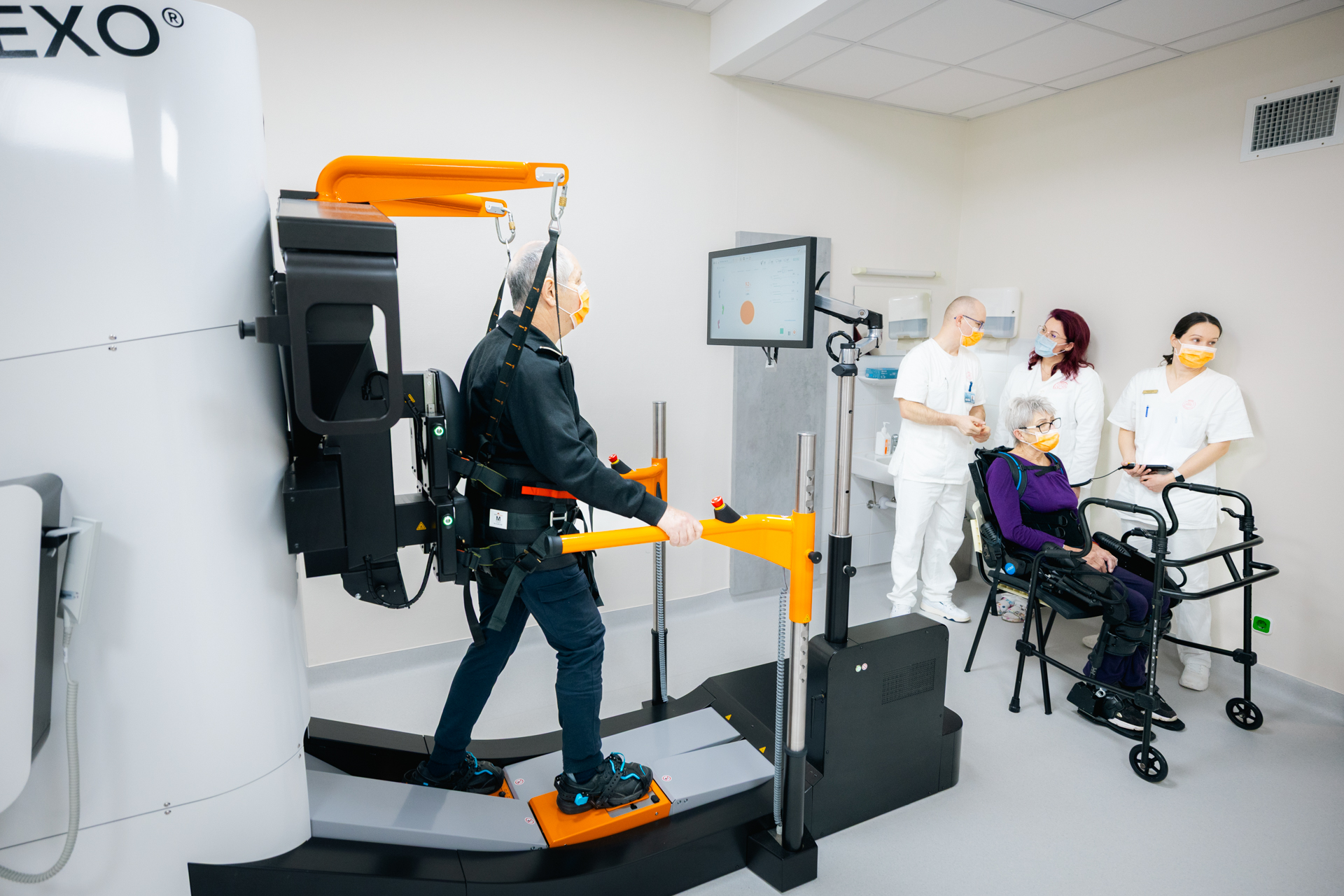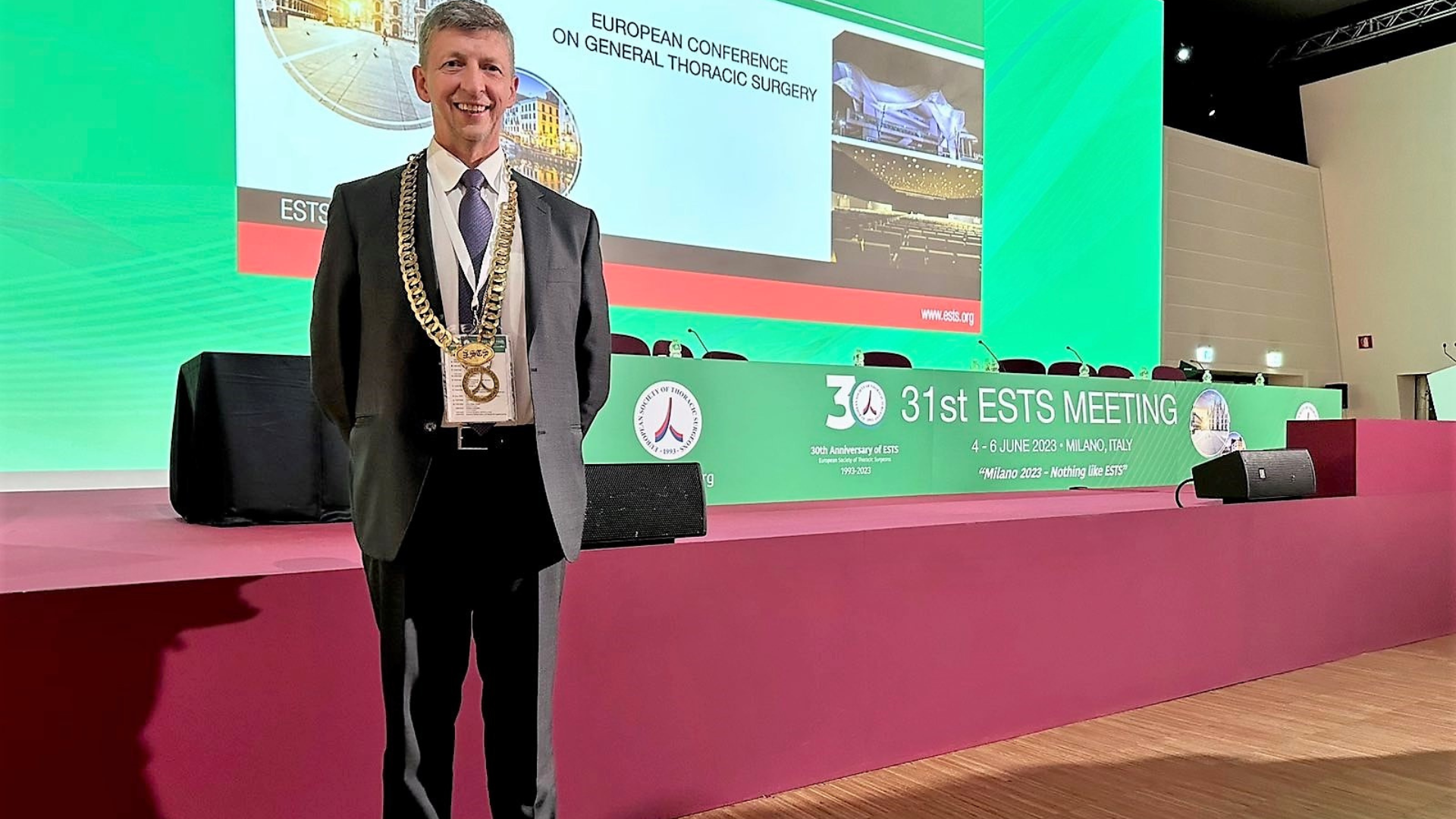University of Szeged
Albert Szent-Györgyi Medical School
Foreign Students' Secretariat
Your Education. Our Mission.

’Go and heal the sick, son’- interview with Prof. Dr. Babik Barna
These were the words of farewell Prof. Dr. Babik Barna received from his mother on leaving the parental home. His outstanding work has recently been recognised with the Officer’s Cross of the Hungarian Order of Merit. On 15 March 2022, former and current citizens of the University of Szeged were also honoured: persons connected to the University received prestigious awards on the anniversary of the 1848-49 Revolution and War of Independence. We asked the Head of the Department of Anaesthesiology and Intensive Therapy at the Albert Szent-Györgyi Health Center about his award.
- What does the Hungarian Order of Merit award mean to you?

- How do anaesthetists and intensive care specialists differ from surgeons or cardiologists?
- Responsibility. That's what came to my mind first.
- Responsibility is an essential element of quality performance. It is a factor in our inner world that can be both inspiring and overwhelming. Motivating and paralysing. It is important to consciously maintain this balance, because its loss is either suffered by the carer or the patient. It is therefore essential that medical students also learn how to deal with it as soon as possible.
- Speaking of medical students. What do you want to pass on to the next generation?
- Education is investment into the future. The students we teach at the university now will most likely be active in the second half of this century and they should be able to face the challenges of that time. Their interest must be stimulated and their thinking shaped in a way that they become capable of renewal over the long term. Students acquire a very solid theoretical and practical knowledge during their university years, but we do not tell them how a doctor who leaves the school with his diploma in his hand should treat their patients and how they should make decisions. There are many ways of doing this. Some answer the question "How do we treat?", by saying "the way we usually do", or "as the boss said", while others say "there is something that has already worked once", or "let’s follow the international guidelines". Each approach has its advantages and disadvantages, but I believe that they should choose one of the basic sciences, such as physiology, and try to keep up and even improve their knowledge in it throughout their medical career. And if they combine these medical attitudes, they will have the right experience, they will be able to make good use of the boss's instructions and make decisions more quickly, they will know about evidence-based recommendations, and they will be able to act fast when a new drug, procedure or disease comes their way, such as Covid-19 nowadays. It is important, therefore, that they consciously build up a structure based on these habitual factors, which they can adapt to their own personality and apply effectively at the bedside. Research also plays an important role in my life, it gives me the opportunity to rejuvenate myself and keeps me revitalised. For me, as a university citizen, talent management is the intersection in the Venn diagram of medicine, education and research, and it has moved higher and higher up the list of priorities throughout my career.
- What gives you strength and what does faith mean to you?
- For me, faith means strength. It is an internal compass, something you can hold on to; guidance that helps to show me the way when I reach a crossroads. But the feedback from patients, and the many, many kind letters, pictures, drawings, glued and sculpted gifts from children who had a heart surgery also give me strength. I have kept all these gifts over the decades in glass boxes on the wall of my study as a precious - if not the most precious – memorabilia.- How has the profession changed in the past 40 years?
- Immensely...And believe me, it will continue to do so for the next 40 years. Let me illustrate this with my own example. The Department of Anaesthesiology and Intensive Therapy was founded in the year I graduated from the University, so this subject did not exist then. At that time, I was studying German instead of English and computers were nowhere to be found. And what is my current life about? Anaesthesiology and intensive care, English and computers. And in the near future there will be advanced organ support/replacement therapies, and we will have to use artificial intelligence and telemetry. COVID-19 has brought us RNA-based vaccines, which may also open up new horizons; remember, the polio epidemic of 1954 gave us the ventilators and blood gas analysis. And it will be at least as challenging not to forget about the Hippocratic principles in the meantime.
- Can you forget about these everyday burdens outside the walls of the hospital?
- No, and the reason for that is certainly that I don't really want to. I often spend my weekends reading articles and preparing for presentations. Sometimes I go for a swim or a long bike ride, but even then I often think about metaphors, associations, mechanisms, "unresolved issues". I believe in staying fresh.
- How does your family feel about this?
- I am surrounded by a very supportive family. My wife understands my "8 plus" philosophy on working hours and our children have brought wonderful periods into our lives. I am thankful to God that we now have two little girls from the next generation running around us from time to time. Without them this interview would certainly not have taken place.
- What do you do in your spare time?
- There is some real recreation. We formed very strong friendships and connections during our university years and we still keep in touch, meet regularly. It's really good to see and hear each other. As a personal thing, I have a passion for a small field of ethnography, collecting the tools of small, traditional crafts. A lot of knowledge, ingenuity, experience, care, attention, preservation of tradition and craftsmanship is hidden in these tools, you can't miss to notice that. I am simply captivated by it. It has opened up another world for me: I occasionally put on some casual clothes, go to fairs, talk to a wide range of people and look for new items in my collection. I have collected almost 15,000 objects, I have had several exhibitions, and sooner or later I would like to publish a widely illustrated book before these special crafts and tools are forgotten for good, since it is our duty to leave a mark.





